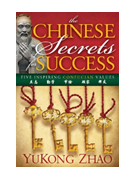The recent government shutdown underscores the difficulty of immigration reform. It is absolutely right to debate how to improve border security, and how to solve the Deferred Action for Childhood Arrivals issue in a humane way. However, one important immigration agenda has largely been ignored in this debate: how to enhance and increase high-skilled labor — H-1B visa immigration.
More important, how does our nation continuously attract the world’s talents that are essential to maintaining America’s technological leadership in the world?
It is unfortunate that when many politicians passionately talk about the economic contribution of DACA recipients, they do not even mention the very immigrant group that has made the largest contribution to the American economy: H-1B visa recipients.
Since the inception of the program in 1990, the United States has granted about 2.5 million H-1B visas to highly educated foreign immigrants. Many of them were educated in the United States and decided to stay in America to support science, education and especially high-tech industries.
With the decline of STEM (science, technology, engineering and mathematics) education, America is failing to educate enough home-grown engineers to support the rapidly growing high-tech firms, which are the No. 1 growth engine of the American economy in recent decades. In my view, many of the engineers in these companies are foreign born, as are many professors in STEM departments of American colleges. Today, high-skilled immigrants have become the backbone of American ingenuity.
These high-skilled immigrants also contribute significantly to the American economy. According to a 2016 report issued by National Science Foundation, median salaries of immigrant engineers and scientists were, on average, higher overall than that of their U.S.-born counterparts, $72,000 compared to $64,000. They are important contributors to American tax revenue.
Equally important, highly educated immigrants embrace American values and observe the laws, and rarely commit crimes.
Even though H-1B visa recipients have been making tremendous contributions to American society, they are not reasonably embraced by our outdated immigration policies. Each year the U.S. grants green cards to more than 1 million new immigrants, but only 85,000 get H-1B visas, less than 10 percent of the total immigrants. Because the quota is far less than applicants (236,000 in 2017), the H-1B visa program is currently implemented through a lottery, departing from its original purpose of serving the needs of American firms.
For many foreign students who have the right skill-set and willingness to contribute to America, obtaining an H-1B visa is a challenging and emotional process. Many American companies do not sponsor working visas for foreign students, so they have to apply for jobs from the limited companies that do. If they’re lucky, after demonstrating unique qualifications and overcoming language and cultural barriers, some foreign students are able to find jobs. Even with that, they have to go through another emotional torture — waiting for the H-1B visa lottery.
If they fail to both find jobs and obtain an H-1B visa, they have to face the heartbreaking choice of leaving America. Some graduate students might have American-born children they must take when they leave America.
Simply because most foreign students respect American laws, they rarely complain or demonstrate when they face the legal deadline to leave America. As a result, our politicians, who tend to be swayed by emotions, often ignore the most valuable people America should keep.
It is true that the H-1B visa policy has some loopholes that need to be addressed. However, the right way is to reform and enhance the policy. Complaints, in response, from either the left or the right are often short-sighted, and should not become the primary basis for America’s policymaking.
History has proved that one of the major cornerstones of American exceptionalism is her magnetic ability to attract the most talented and hard-working immigrants from all over the world to build America into the greatest nation on Earth.
In the 21st century, America has lost its technology dominance in too many industries, from auto manufacturing and consumer electronics to consumer drone technologies. We need talented and hard-working immigrants more than ever.
As the world is rapidly transitioning into a knowledge-based economy, America’s immigration policy should primarily focus on how to continue attracting the world’s talents, instead of just responding to political influences.
YuKong Zhao, a Chinese-American author, is the president of the Asian American Coalition for Education. This article was first published in Orlando Sentinel on January 29, 2018.



